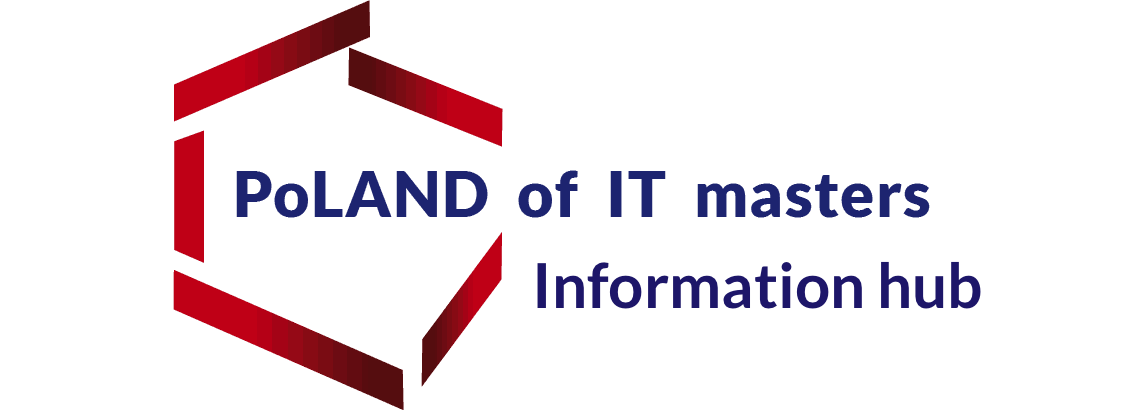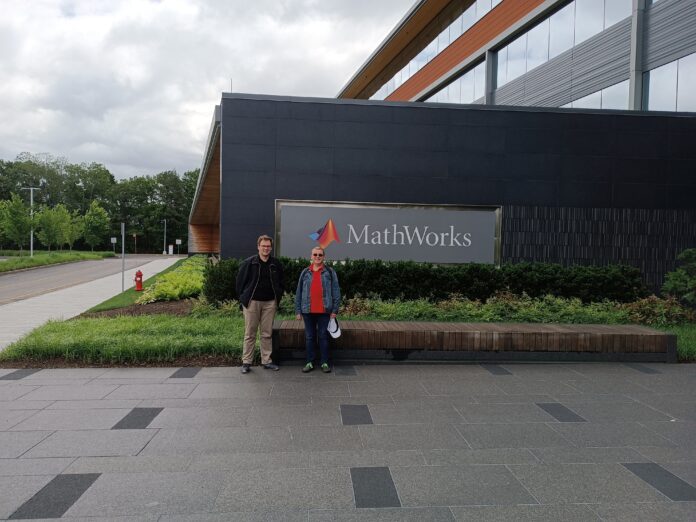Scientists from NASK, Poland, visited MIT. They were invited by MIT Computer Science & Artificial Intelligence Lab. It is one of the most modern research units in the world. Konrad Ciecierski and Mateusz Koryciński had the opportunity to present there their scientific achievements. The papers met with great interest from the present academic group.
The stay of Polish scientists in MIT began with a visit to the campus in Boston. It was an opportunity to get to know even better the structures of one of the leading scientific centers dealing with the development of AI/ML in the world. At that time, Polish scientists could better get to know the scientists working there. They had previously known them only from scientific publications and interviews.
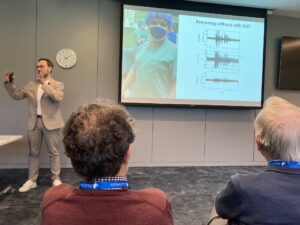
Tech Talk
During the Tech Talk Konrad Ciecierski, and Mateusz Koryciński presented their scientific achievements in the papers. The first was about “AI in Medicine, applications in Deep Brain Stimulation”. The second about “HyTract: A Hybrid Method for Tractography In Preoperative Planning.” Prof. Gilbert Strang was particularly interested in the role of wavelet transforms in the processing of signals recorded during DBS procedures.
“Meeting scientists from leading research centers has strengthened my belief that NASK also carries out unique and important projects,” said Mateusz Koryciński.
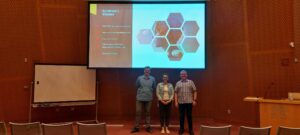
Meeting with Prof. Dina Katabi
An essential point of the program was the meeting with Prof. Dina Katabi. In her research she deals with the detection of Parkinson’s disease. And its degree of advancement based on passive and non-contact registration of the examined person’s breath. The scientists discussed the possibilities of detecting cyclical neuronal discharges in the basal ganglia using EEG or the analysis of signals recorded intraoperatively by microelectrodes.
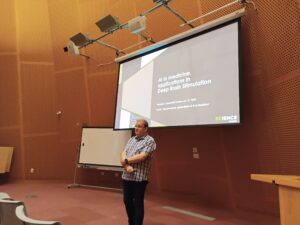
MathWorks Research Summit
The next day, NASK representatives took part in the “MathWorks Research Summit” conference. During it they presented using of ML/AI applications in deep brain stimulation operations and planning neurosurgical operations. Mike Michailidis hosted the meeting from MathWorks. And the participants were researchers developing the Medical Imaging Toolbox. Our scientists took advantage of the opportunity to get to know the developers of the software package and actively participated in the discussion on the directions of its further development. Vijay Iyer hosted the meeting from MathWorks. Our representatives met with the teams responsible for the DSP System Toolbox and Deep Learning Toolbox. As well as with Jeff Mather from the Medical Imaging Toolbox team. And with David Escobar from the Cleveland Clinic, who analyzes LFP signals recorded during DBS operations.
– Such a trip lets you get acquainted with other scientists’ workshops, often known only from publications or interviews. Trips to world-class conferences abroad should be an indispensable part of scientific improvement at every stage of a researcher’s career, said Konrad Ciecierski.
The next day, during the MathWorks Research Summit, the director of NASK, Michał Karpowicz, gave a lecture. It was entitled “From Cybersecurity to Neurosurgery.” He presented achievements in using AI mechanisms in cybersecurity and medicine during his speech.
– We create multidisciplinary teams that look at the most ambitious research topics from different perspectives. It allows us to see non-obvious and very effective universal solutions. We use the experience gained in one area in other areas. It is our great strength – summed up Michał Karpowicz.
Read more about NASK here (in Polish).
Read more about AI Investments here.
